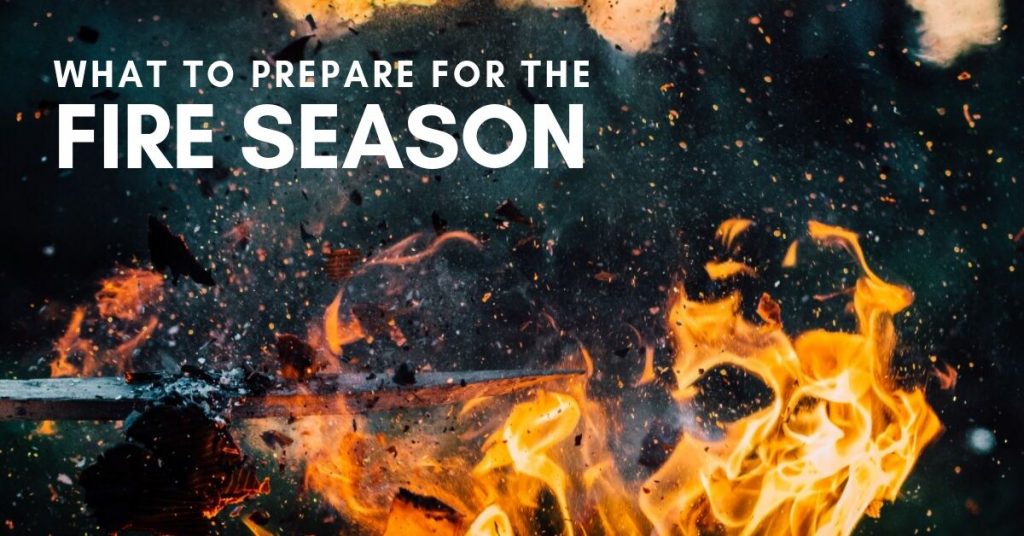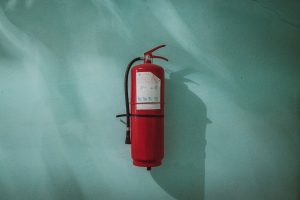
Preparing for the Fire Season
Bushfires and grass fires have been regularly occurring in Australia throughout history. Because of the country’s hot and dry summer months, even the tiniest spark can cause a fire that ends up spanning thousands of square kilometers. Major fire events such as the fairly recent Black Saturday fires have resulted in great loss of life as well as property, as well as the economic impact to the affected community and the country as a whole.
Are you capable of defending your property?
Defending your property from fire is hard work, both physically & mentally. Not to mention that it is dangerous and can result in fatalities, especially if you’re not completely prepared. Some fires are so severe that no amount of preparation can save your property. In cases like these, your best (and often only) option is to leave the area before the fire approaches. Check with your local fire authority on what the fire danger rating is, and when it is advisable to leave the area.
Prepare a bushfire plan
It’s important to have a proper plan on what to do when fire strikes. When you have a plan in place, it is easier to manage your actions and make decisions based on the current conditions. Without it, your actions might be affected by panic and confusion. The Country Fire Authority Victoria has an excellent Bushfire Survival Planning Template which you can use.
Monitor the conditions in your area
If you are located in an area with high fire risk, keep on top of the current fire alerts through the radio or your local fire authority website. SBS News has published a page which contains phone numbers and links to every state’s bushfire authorities.
Prepare your property to minimise fire risk
There are things you can do to minimise the risk of fire damaging your property. This involves maintaining the external area of your property, carefully storing unstable and hazardous materials, and many other things you can do around the property .
- Manage vegetation – Clear out vegetation around the house.
- Trim shrubs & branches
- Mow grass around the area
- Clear twigs and sticks that can act as fire kindling
- Clear mulch and dried leaves on the ground
- Clear out dried vegetation from drains and gutters
Keep fire fighting equipment around the house

Photo by Piotr Chrobot on Unsplash
To increase your property’s chances of surviving a fire, ensure your are equipped with working fire fighting equipment. Early intervention by property owners have been known to prevent greater damage to properties.
- Fire extinguishers – These are essential in any property, as they are usually the first line of defense against fire that has just broken out. The importance of fire extinguishers cannot be understated, but make sure they are regularly checked and located in key places around your property.
- Fire blankets – Sometimes the fire can’t be put out with water. This is usually true for sources such as cooking oil and fat where water will just disperse the fuel and spread the fire.
- Fire pumps – A good fire fighting water pump will offer the next level of protection for your property. They offer higher water flow and greater height (called the head) to reach more area on your property. Water Master offers several water pumps specifically designed for fire fighting such as the entry level Honda GX160 powered MH15-SHP and a diesel version MYD15HPE powered by an electric start Yanmar L70N engine. Our 1.5″ fire fighting pumps can be paired with our firefighting hose kits which ensures you are completely ready with everything you need should the time comes.
Prepare backup supplies
Even when your property is safe from fire, your supply route for basic necessities like water, electricity and food might be temporarily cut. To ensure that you still can continue using these essential supplies, consider having these on your property:
- Backup water tank – make sure it is filled, well maintained, clean and usable for consumption
- Backup power generator – There are many types of generators available on the market. Large diesel generators are useful for larger properties with high electrical usage, and portable generators are useful for smaller areas. However, being portable units, they can be mounted on vehicles and be transported around to put out fires in multiple areas.
Livestock and animals
If you have animals in your property, their welfare is your responsibility. You have to incorporate them into your bushfire plan. Include evacuation routes, food supplies, water and first aid kit. Please refer to this Horses and Livestock in Emergencies page by Agriculture Victoria for more information on how to handle situations involving animals.
Extra resources
Bushfire Survival Plan by the NSW Rural Fire Service
Prepare your farm for fires by CFA Victoria
Bushfire Safety by Allianz Insurance
